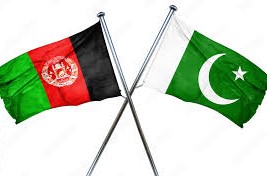Pak-Afghan pledge to eliminate terrorism, warning failure risks regional peace, with final agreement to be discussed in upcoming Istanbul meeting.

BY Asghar Ali Mubarak
ISLAMABAD: Pakistan and Afghanistan have affirmed a joint commitment to eliminate terrorism along their shared border, Pakistan’s Defence Minister Khawaja Asif said, following a recent ceasefire agreement that temporarily halted cross-border hostilities. The announcement comes amid heightened tensions in the region, where sporadic clashes and militant activity have long threatened stability.
Speaking in an interview with Qatar’s state broadcaster, Asif stressed that both countries were dedicated to “serious efforts” to bring militancy under control. He warned that failure to act decisively would carry “serious risks to the peace of the region.” The minister described the primary goal of the agreement as ending the persistent threat of terrorism that has plagued the frontier areas for years, noting that last week’s tensions had escalated into direct military confrontations between Islamabad and Kabul.
Asif confirmed that the agreement’s details are still being finalized, with a follow-up meeting scheduled next week in Istanbul. The negotiations were largely mediated by Qatar and Turkey, and the defence minister extended his gratitude to the Amir of Qatar, Sheikh Tamim bin Hamad Al Thani, and Turkey’s President Recep Tayyip Erdoğan for their roles in facilitating the process.
The diplomatic initiative led to a ceasefire deal reached over the weekend in Doha, signalling a notable de-escalation after days of heightened military posturing along the border. Officials said the agreement reflects a shared understanding that cross-border terrorism is not only a bilateral challenge but also a threat to wider regional stability.
Asif highlighted that both nations are now focused on implementing mechanisms to monitor compliance and prevent future clashes, underscoring the importance of sustained cooperation in tackling extremist groups operating in the area. The minister’s remarks emphasized that achieving lasting peace will require ongoing commitment and coordination.
The recent developments underscore the growing role of regional mediation in South Asia, demonstrating how diplomacy, backed by international partners, can help reduce tensions in long-standing conflict zones. While challenges remain, the ceasefire and ongoing talks offer a pathway toward stabilizing one of the region’s most volatile border areas, where insurgency and militant violence have persisted for decades.


